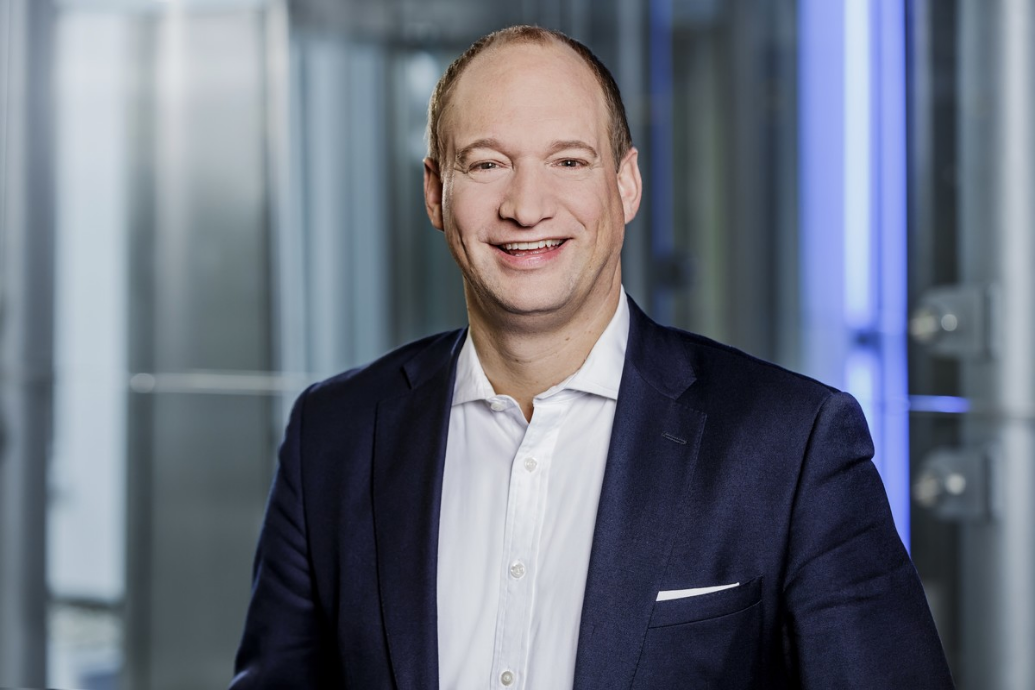Dr. Andreas K. Gruber
Head of Public Affairs & Sustainability – DKB AG
Sustainable Finance – what does that mean to you?
Dr. Andreas K. Gruber: For me, sustainable finance means that banks and financial market participants are aware of their role in directing financial flows; therefore, they have a decisive lever to make the economy’s and society’s sustainable transformation a success. Nobody forces banks to finance coal-fired power plants in Europe or a dam in the Amazon region. It is up to us. Every day my colleagues and I are happy to work for DKB – a bank which doesn’t do that but prefers to provide financing for renewable energy projects and preschools. Generally speaking, we as a bank act sustainably, if our financing is in line with the United Nations’ Sustainable Development Goals and the Paris Climate Agreement.
However, sustainable finance also means supporting the real economy with its transformation – and not “pulling the plug” on certain industries that are in need of transformation. For me personally and for DKB as a whole, sustainability includes much more than just “green”. We shouldn’t limit the topic to environmental and climate protection alone.

In your opinion, what’s the key to successfully develop the sustainable finance movement?
Gruber: I see three points here. First: We need to bring sustainability into the mainstream. We can only achieve our ambitious goals as a state, industry or society if as many people as possible join in, not just a bubble of urban elites. We also need to include the real economy – especially those industries with a high need for transformation – and ultimately all banks and financial market players, not just a small group of pioneers.
Second, we need to look closely at sustainable finance and focus on the essentials. I am always sceptical when financial market players talk exclusively about their direct CO2 emissions in their business operations or start planting trees. We need less greenwashing and more integration of sustainability into a bank’s core processes – from group strategy to lending and risk management to governance structures. We need to stop treating sustainability as a feel-good topic made for glossy corporate brochures but rather integrate it into the engine rooms of financial market actors.
And third, we need to understand sustainable finance as a whole as a data issue and link it to the huge topic of digitalisation. Without the collection and evaluation of relevant ESG data, we can neither identify and manage risks nor bring our portfolios in line with the Paris Climate Agreement. Even ambitious projects such as the EU Taxonomy can only succeed if there is an appropriate data basis.
What role does DKB play here?
Gruber: We are the most sustainable bank among the top 20 banks in Germany and strongly dedicated to keeping it that way. We want to prove that our success is based on sustainability being part of our DNA. As one of Germany‘s largest banks we are committed to bringing sustainability into the mainstream and making it tangible for all our customers. We already successfully communicate sustainability internally and externally through our cross media campaign #geldverbesserer.
We want to continue being the bank with the highest proportion of ESG-compliant loans among the top 20 banks in Germany. We will work closely together with our corporate banking customers to drive renewable energies forward and strengthen Germany‘s social infrastructure. Last but not least, we offer a wide range of sustainable products, e.g. sustainability funds or investment opportunities in sustainable project financing, to our nearly 5 million private customers.

“This ethical and moral responsibility is what motivates me. I want to prove that banks can (only) be economically successful when taking on that responsibility.”
What is your personal goal?
Gruber: As Head of Sustainability at DKB, it is my goal to establish sustainability as a core part of our DNA and business model. In recent years, however, banks have not always done everything right. Today, they have the chance to reinvent themselves and contribute to the positive development of our global economy and society.
This ethical and moral responsibility is what motivates me. I want to prove that banks can (only) be economically successful when taking on that responsibility. In other words: I want to be able to consciously say: “Yes, I am a manager in a bank – and together with my team, I am actively supporting a more sustainable economy and society.”
„In order to stop climate change – the effects of which have long since been noticeable – enormous investments are needed. This is why we are embracing the idea of private capital also being invested according to the principles of sustainability. The Cluster aims at further promoting this movement.“
Hessian Minister of Economy, Tarek Al-Wazir


